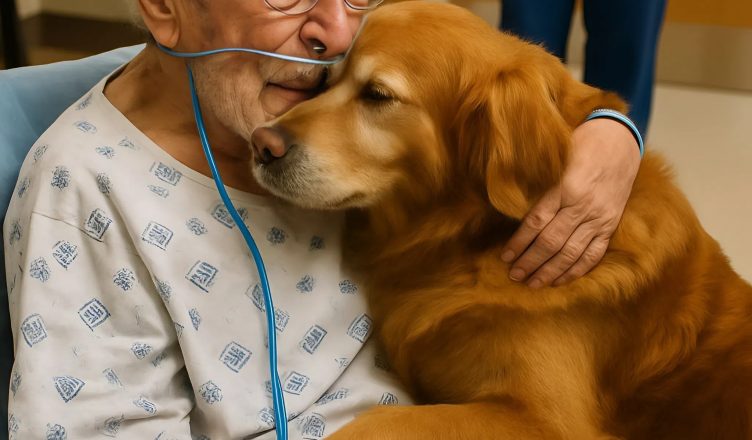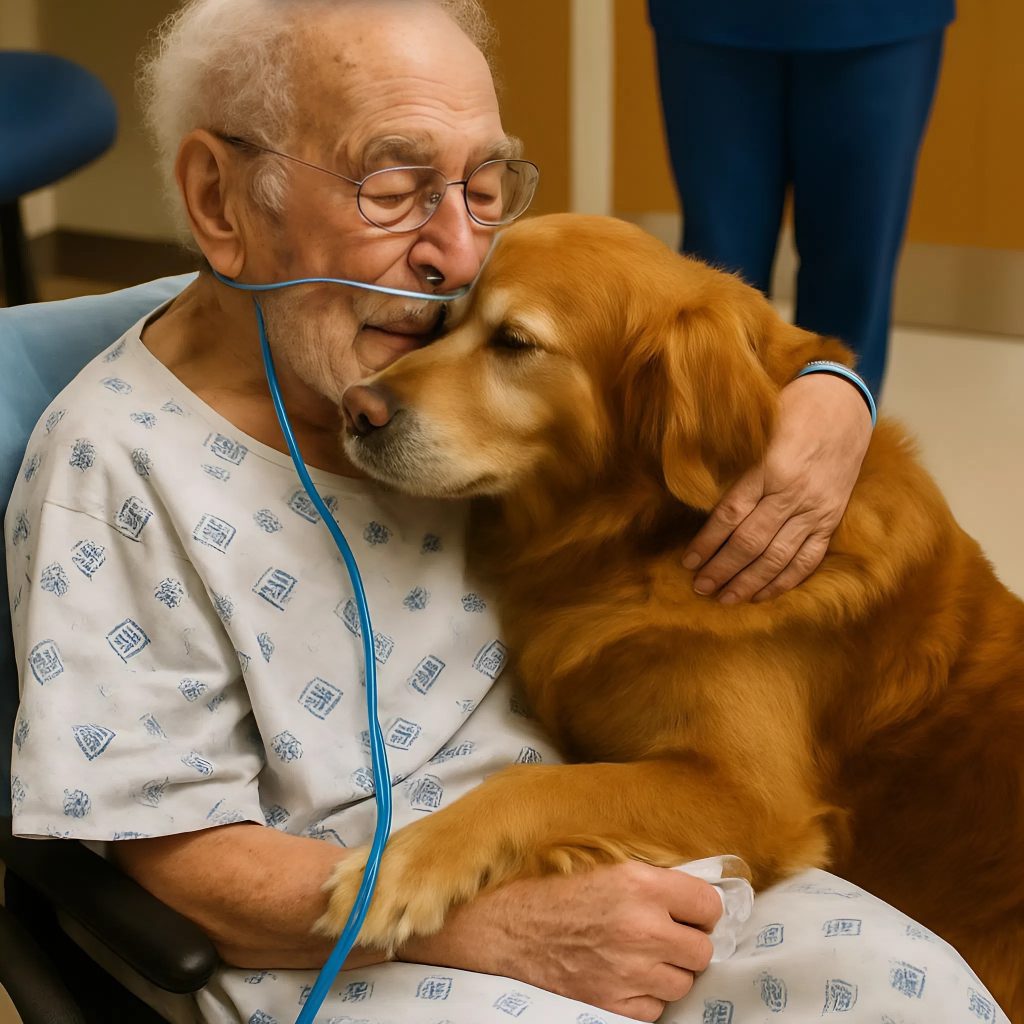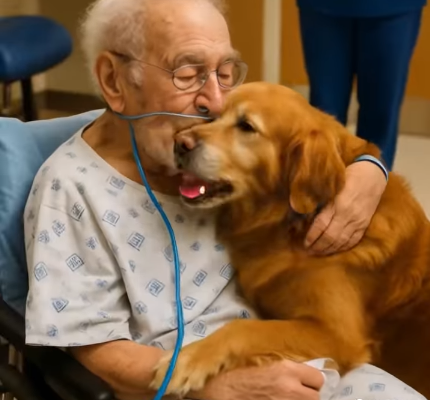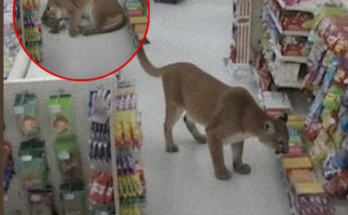It began like most nights in the palliative care ward: quiet, sterile, predictable. Nurses whispered in the hallways, monitors blinked their green rhythms, and the air smelled faintly of antiseptic and something else… something harder to describe, like the presence of a memory.

But that night, something happened in Room 7 that none of the staff could explain—and none of them would ever forget.
The man lying in the hospital bed was in his eighties. His body was frail, his breathing shallow, and his eyes had the vacant look of someone preparing to let go. He had no visitors. His daughter was still driving in from out of state. The doctors didn’t offer false hope—just quiet suggestions that the end was near.
But even in those final hours, when every breath seemed to cost him more than the last, he kept whispering the same name:
«Murphy… Murphy…»
His lips barely moved. His voice was dry and cracked. But that name—he clung to it, repeated it with what little strength he had left. Some thought it was a son. Others assumed it was an old army friend.
The young night nurse, fresh into her first week on the job, finally asked the question aloud:
“Who’s Murphy?”
Silence. No one in the room had an answer.
Out of instinct, someone called his daughter.

When she heard the name, there was a pause on the line—then her voice broke:
“Murphy’s not a person. He’s our dog. A golden retriever. Thirteen years old. We had to leave him with my brother when Dad was admitted. They were… inseparable.”
What happened next, by every rule in the book, should’ve been impossible. Hospitals have policies. Hygiene standards. Restrictions. But that night, something stronger than protocol was in the air.
The head nurse—tough, seasoned, known for following every rule by the letter—listened to the story in silence. Then she nodded slowly and said two words no one expected:
“Bring him.”
Two hours later, while machines beeped in the background and hope was beginning to flicker out, someone knocked on the door of Room 7.
He entered without a sound, his golden fur glowing under the hospital lights. His movements were soft, deliberate—as if he understood where he was. He didn’t bark. Didn’t jump. Just walked straight to the bed… and climbed up.
Murphy rested his head gently on the old man’s chest. His tail wagged—slowly, rhythmically, like a heartbeat of its own.
Then, something miraculous happened.
The monitors shifted. First a small spike in heart rate. Then steadier breathing. Then—against every medical expectation—the man opened his eyes.
He looked down, saw the golden head nestled against him, and smiled weakly.
“I knew you’d find me…” he whispered.
In that moment, the air in Room 7 changed. Time slowed. Even the fluorescent lights seemed to dim. No one spoke. No one could.
For the next three days, the man lived. Not just survived—lived. He talked. He laughed. He ate a little. He smiled constantly, his hand resting on Murphy’s back. It wasn’t a recovery. It was something deeper. A return. A final chapter written the way it was always meant to end.
When he finally passed, Murphy didn’t cry or bark. He simply laid down in the same spot, closed his eyes, and sighed—as if he understood that his job was done.
And from that night on, Room 7 was never quite the same.
Other patients began asking to talk about their pets. Some stared into the corner and smiled at nothing. One even said, confidently:
“I’m not afraid. He’s already waiting for me. On the other side. With a tennis ball in his mouth.”
The story of Murphy became legend among the hospital staff. Not because it was the kind of case you write about in medical journals. But because it reminded everyone—doctors, nurses, and visitors alike—that sometimes, what a soul needs isn’t medicine, or even a miracle…
Sometimes, all we need is the one who waited by the door.
Faithful. Patient. Unmoving.
Murphy knew.



